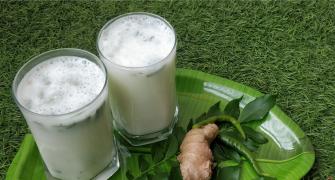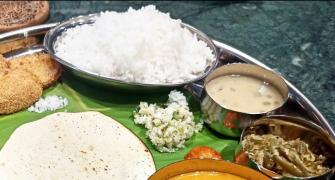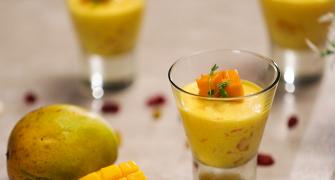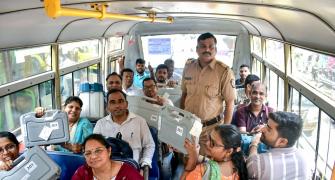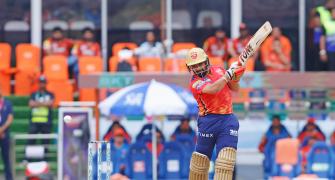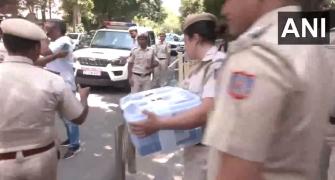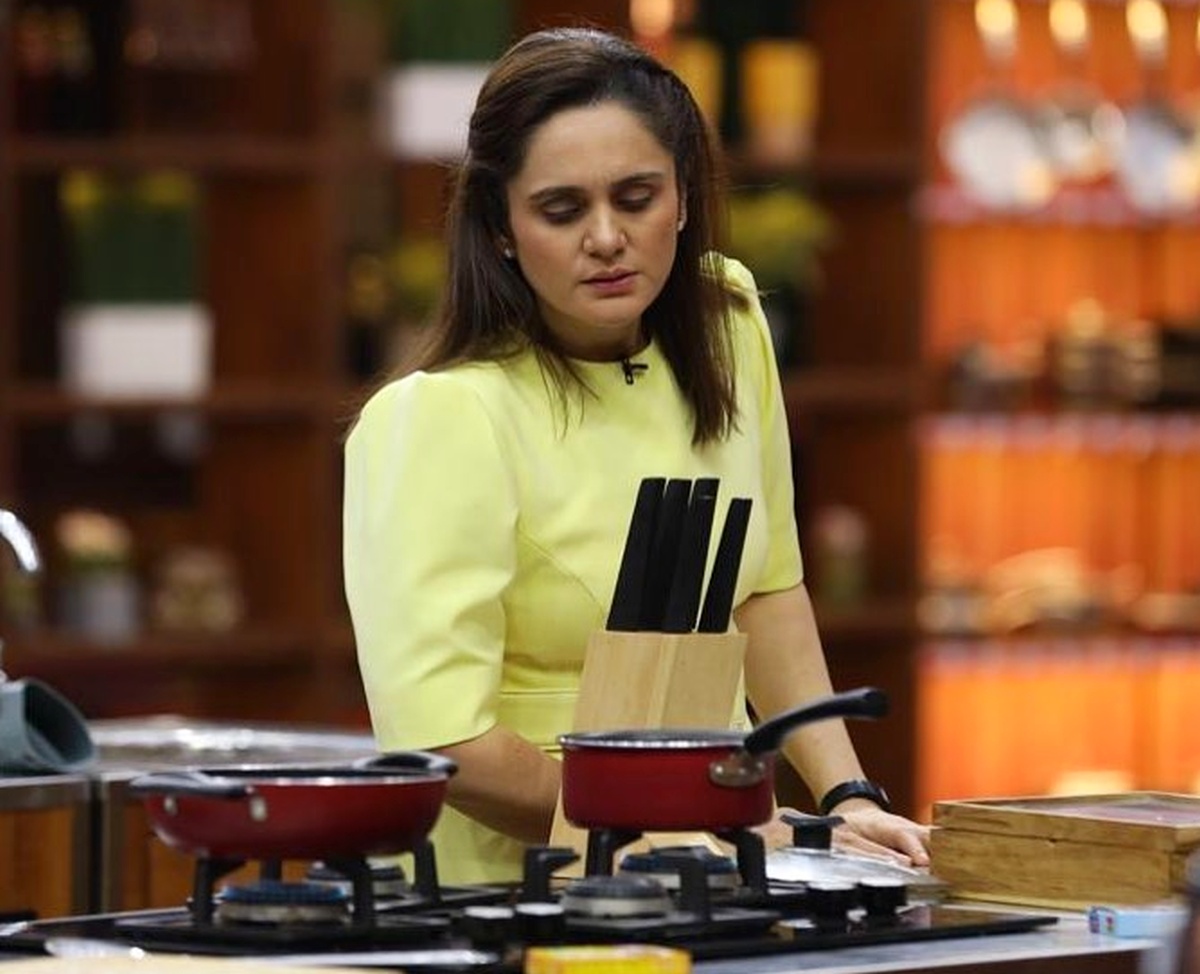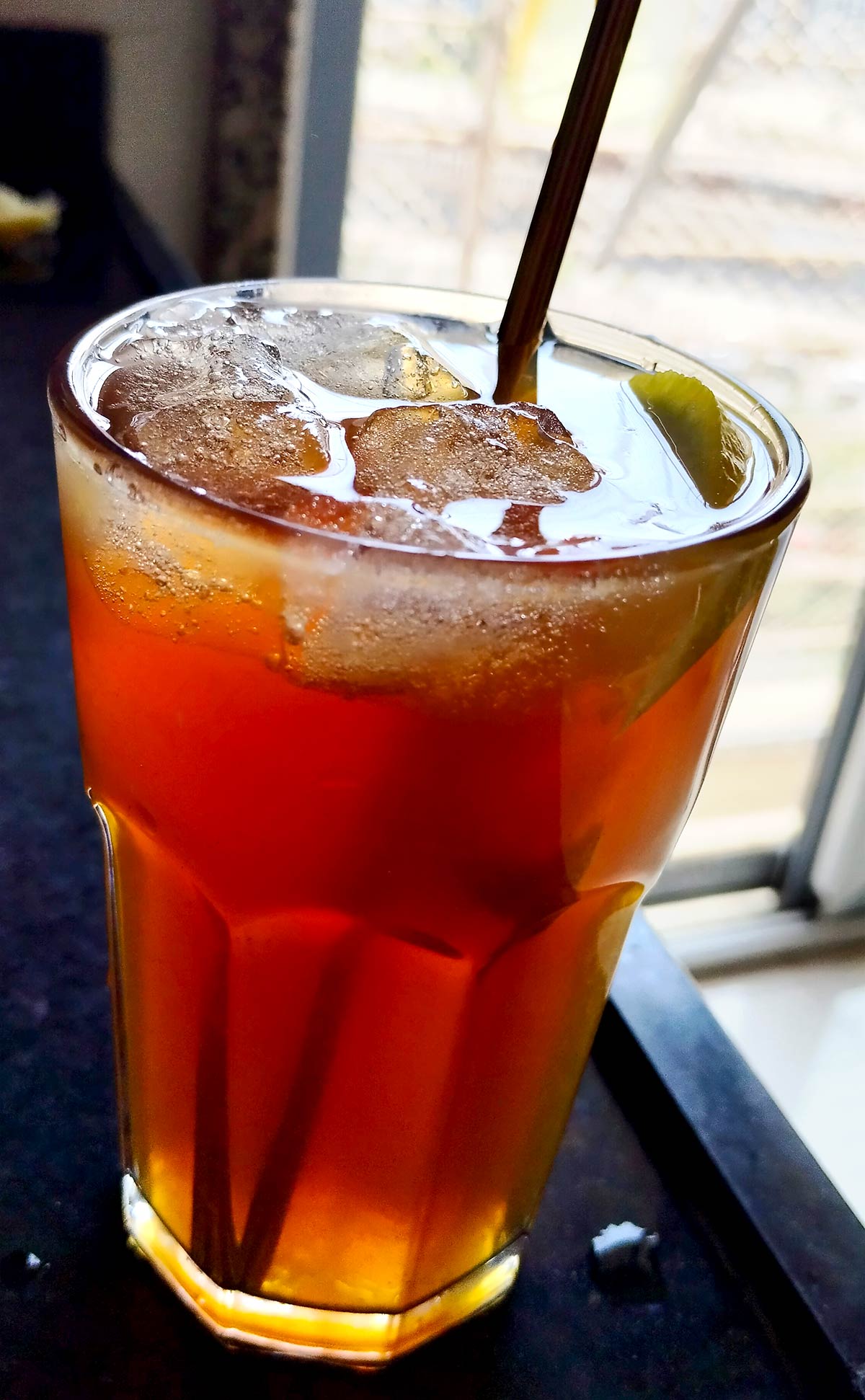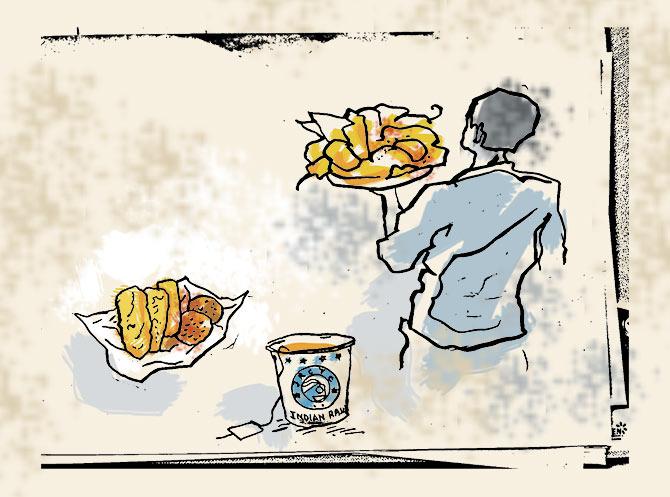
Summer holidays for me bring back nostalgic memories of childhood -- of reuniting with my maternal grandparents and cousins who had moved to Perinaickenpalayam, a locality outside Coimbatore, Tamil Nadu, and then visiting my father's relatives in Kuzhalmannam, Palakkad, which was a three-hour journey by bus.
It may sound ridiculous to some of you now, but my younger brother and I would look forward to spending over 30 hours on a train from Kalyan to Coimbatore.
Since the journey was long, and bottled water was either unavailable or expensive, we'd carry our favourite red-and-white Milton jug which could store up to five litres of water and be refilled easily.
Apart from packing our best set of clothes to wear for Vishu and the annual Tiruvilwamala pooram, Amma and Papa had to adhere to a long list of goodies, including fancy nighties for the aunts and Mumbaiyya clothes for our dear cousins, which we would shop for, bargaining hard, at local stalls in Ulhasnagar and Kalyan, a week before the holidays.
We never quite understood the obsession of us getting stuff all the way from Mumbai. The list of gifts would include pedhas and namkeens that were happily distributed to neighbours and visitors, who would come to meet us in our home town.
We travelled to Coimbatore with a large suitcase and a small duffel bag for our clothes. And then there would be a huge green and white kotta or koodai (a plastic handwoven bag) that was durable enough to accommodate our packed lunches, dinners and munchies.
I realised how strongly our parents' outlook was guided by the principles of sustainable living in those days, because we would also carry two steel plates, a glass tumbler, a knife, spoon, some sugar and salt as well. The plates and spoons would be washed and reused during the journey. Several years later, of course, these were replaced by disposable paper plates, glasses and spoons that were much lighter and convenient to carry.
Once my brother was about seven or eight, each one was entrusted to lug one bag/item to share the load. Papa, who refused to take the help of coolies, obviously was our superhero and would carry the large suitcase and the duffel bag (mind you, there were no wheels or trolleys back then) while Amma held onto the precious kotta in one hand and guided my brother and I, who would share the load of the kotta or the water jug with our other free hand.
We'd carefully cross the railway tracks from the east end to the west and reach Kalyan station at least 30 minutes in advance. Once we found a place to park our stuff at the station, I would happily accompany Papa to check for the list of confirmed passengers and the bogie position, which would be up on a blackboard near the station master's office. This was an annual ritual I couldn't miss, something my brother took over from me when he grew up.
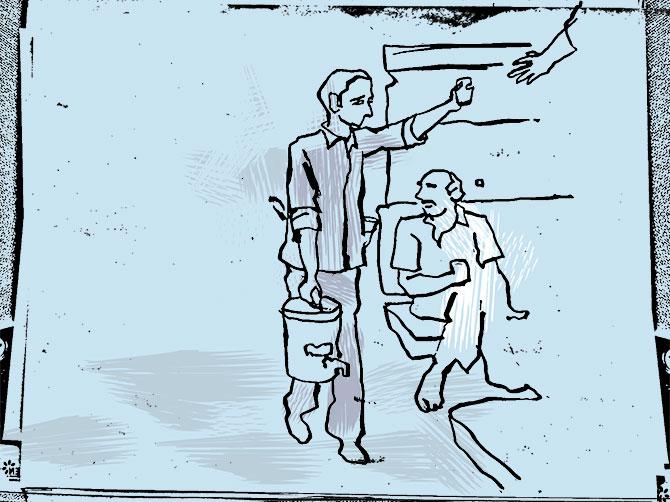
As soon as we boarded the train, usually in second class, we would hope to get at least one window seat to enjoy the view and any rare sights/sounds when the train began moving.
The four of us would complain and skip the watery chaaya (chai) and dull tomato soups and wait for the crispy masala vadas at Raichur station, when we entered Karnataka.
Papa, who worked as a chef, would warn us against the tempting but cold and stale food sold in pantry cars and railway stations at odd hours. He would always test the vadas and insist on us having hot, freshly cooked-food or stick to the meals we had packed from home.
Throughout our annual train journey, we relied on our cold, but pillowy home-cooked idlis, served with tomato chutney and podi for breakfast. Amma would pack lemon or tamarind rice with fried potato podimas (sabzi), chips and pickle for lunch, and for dinner it was chapattis with a masala curry made from deep-fried tomatoes and onions.
If anyone felt hungry, between meals, Amma offered us bananas, apples or oranges.
Since we travelled on the Kanyakumari Express, we'd board the train around 4.30 pm from Kalyan and reach Coimbatore the following day by midnight.
My elder cousins, accompanied by my maternal uncle, would be gleefully waiting to receive us at the station. We communicated the date and time via inland letters and later by landline phones, well in advance. But there was no way of sharing live updates or tracking the train, like we do now. Amma and Papa would have memorised the approximate time of arrival at important stations or checked with the railway staff for an update.
If the train arrived late and we missed a connecting bus to Perinaickenpalayam, all of us would spend another hour catching up, while sipping on hot chai or coffee along with bajji, bonda or masala vada, whichever was available at the street-side stalls outside the station.
The journey onward, from Coimbatore Junction to Perinaickenpalayam by bus, would be filled with non-stop chatter, while we made elaborate plans on how we would be spending the next couple of weeks together.
After our first week of holidays in Coimbatore, Papa would insist on praying at the Azhakotha Mahadeva temple in his hometown, Kuzhalmannam. It would be a two-day trip and we'd change three buses on the way.
The four of us would leave Coimbatore after breakfast hoping to reach Papa's ancestral home right before lunch. The journey from Pricol to Ukkadam and then Palakkad would take us two hours or more. Palakkad bus station was a busy place with private buses named either after the gods (Guruvayoorappan, Shastha) or the owner's favourite sons (Murali, Naveen) and daughters (Aishwarya, Minimol).
The young, good-looking conductors of the privately-operated buses, dressed in printed shirts and mundus, would harmlessly flirt with the women and compete to pick up passengers.
But once on the bus, the passengers were treated with zero dignity, with the drivers taking everyone on a wild ride as they roughly navigated crater-sized potholes and remnants of speed-breakers in a style that would put F1 racers to shame. Women and kids had the first preference when it came to seating, even opting to perch on the over-heated covered engine, next to the driver, at the front of the bus.
By the time we'd reach Palakkad, it would be noon and it would be sweltering hot outside. There were no AC buses and the thought of travelling in a hot window seat, bracing the heat, would make us sweat further. While we waited to board our designated bus to Kuzhalmannam, several vendors would come and go selling banana halwa, kai murukku and Alathoor chips, packed neatly in brown paper.
But the only thing that would tempt us at bus halts in Kerala would be the sight of sherbat stalls serving goli soda, Naranga Vellam (lime juice) and Nannari Sherbat.
Asking Amma would be pointless, because she'd hand us our water bottles which would have only gotten hotter. So my brother and I would hint to each other to take turns convincing Papa to treat us to a chilled glass of Nannari Sherbat.
Amma would frown, but eventually follow us while we crossed the road and waited patiently for our favourite summer cooler.
The vendor would take a fresh glass tumbler, squeeze some lime in it, add soaked basil seeds, followed by a reddish-brown concoction and asked us "Soda vaeno? Ice vaeno? (Do you want soda or ice?)' to customise it to our liking. If we refused either, he'd just add plain water, flip another tumbler on top, shake it twice or more and serve it immediately, while some of the contents spilled or slopped over.
Papa loved the soda version while my brother and I liked it with water and ice.
The sweet, bit tangy cooler could be gulped down in a jiffy. It was Rs 5 per glass back in the '90s. Unfortunately, one could rarely relish it at leisure because we would be having it while our bus to Kuzhalmannam waited to leave. The next bus, Amma would keep reminding us, would be 30 minutes later.
The memory of sipping this long, cool drink that barely lasted for less than a minute would fill our hearts and give us the much-needed energy to continue the hour-long bus journey.
The prime ingredient of Nannari Sherbat is sarsaparilla, a tropical root or vine, a coolant, which is believed to reduce pain in the joints. You can make the concoction at home if you can source the right ingredients or simply order it online.

Nannari Sherbat
Serves: 2
Ingredients
- 4 tbsp neebu or lime juice
- 100 ml readymade sarsaparilla or nannari syrup
- 2 tsp sabja or basil seeds, pre-soaked in water 10 minutes before
- Soda, optional
- Ice, optional
- 2 tall glasses
Method
- In each glass, add a few cubes of ice.
Add 2 tbsp lemon juice to each glass.
Then 1 tsp basil seeds to each glass.
Add 50 ml sarsaparilla or nannari syrup to each glass and stir.
Now top up with soda or water and stir again. - Serve very chilled.
Divya's Note: Nannari Sherbat is most soothing in summer with soda or ice-cold water. There are several versions of this sherbat available in Andhra Pradesh and Tamil Nadu, where it is served with jaggery, honey, powdered sugar, or even mint leaves. I am told it can also be mixed with milk, a dollop of ice-cream and basil seeds -- that's called Nannari Paal Sherbat.

